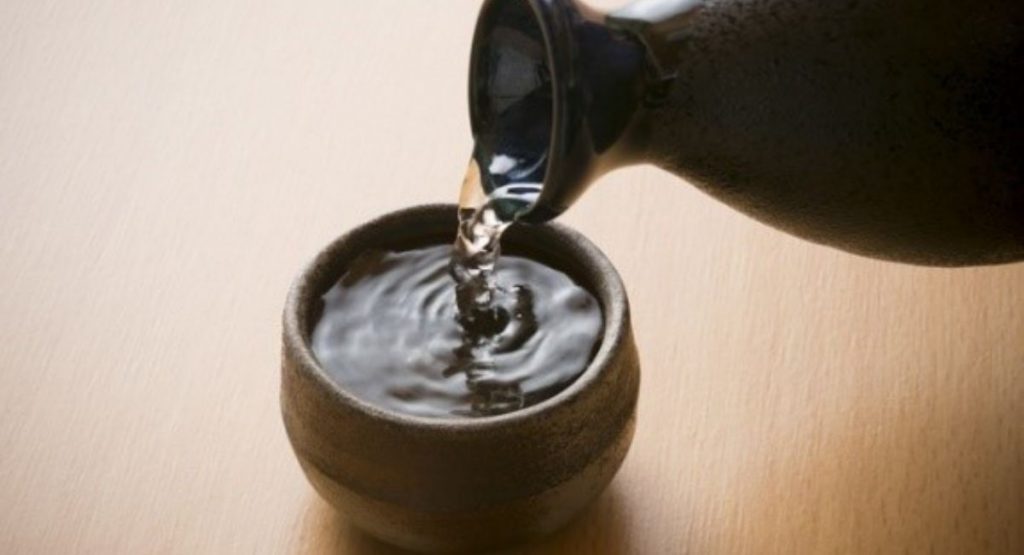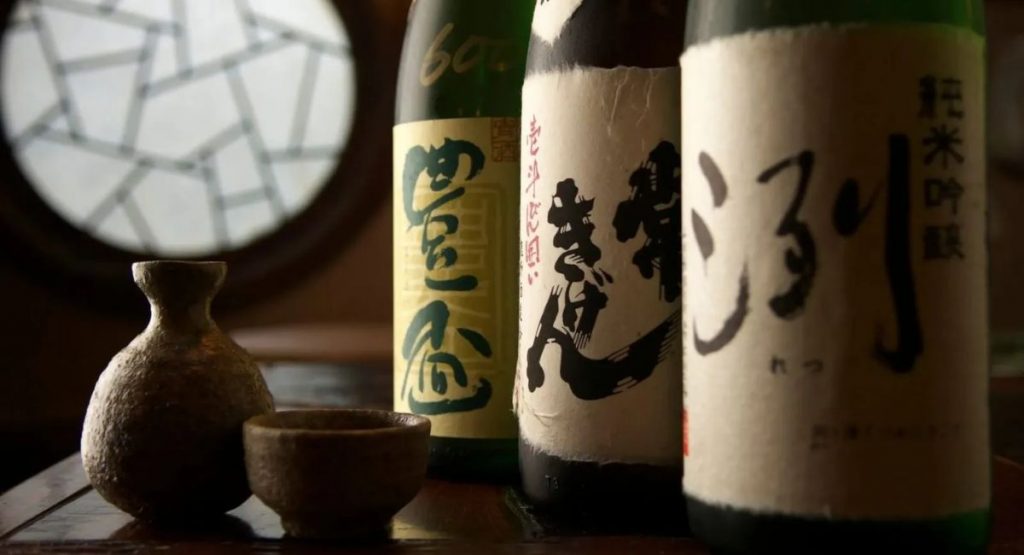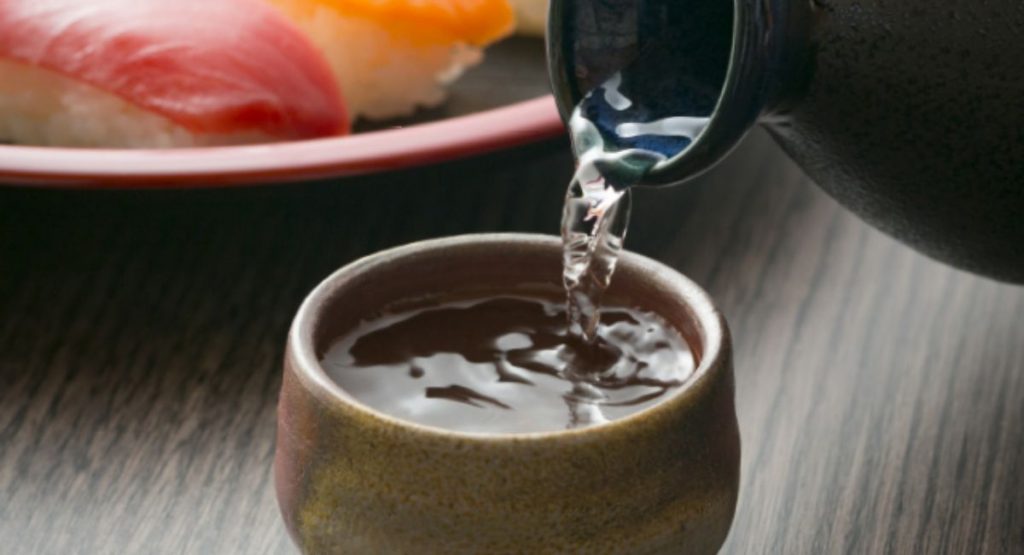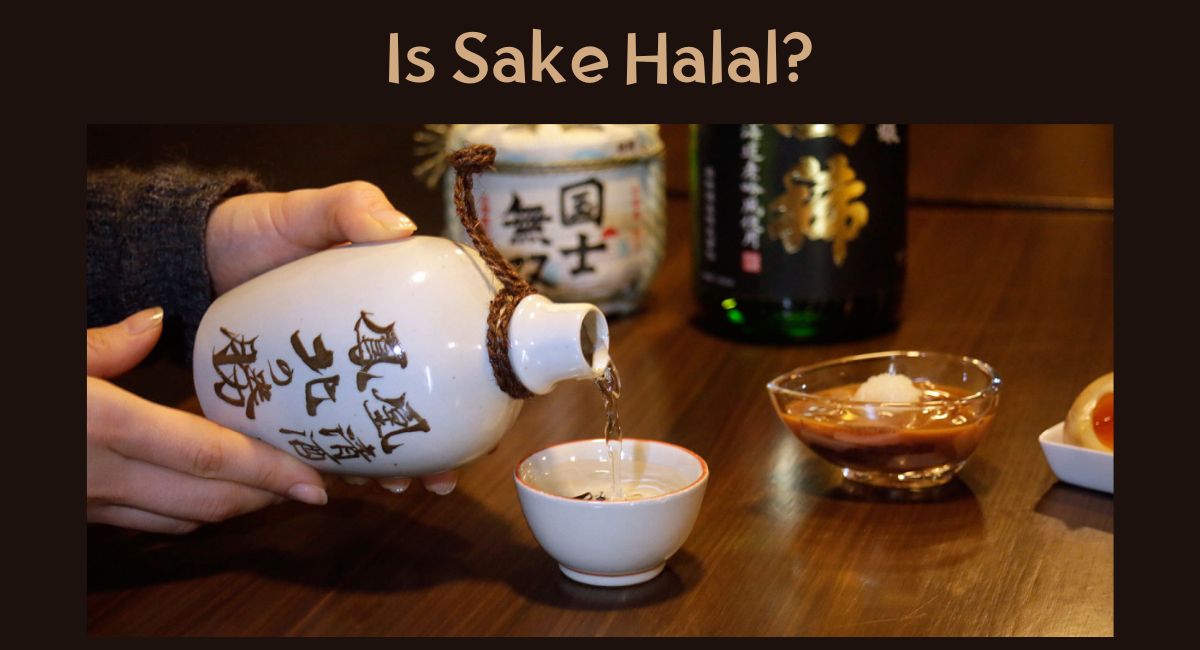Sake, or Japanese rice wine, is becoming increasingly popular around the world. It has a unique taste and distinct flavour profile that make it very sought-after for culinary purposes. With its rising popularity, many people are wondering if sake is halal – that is, permissible according to Islamic dietary laws. In this blog post, we’ll explore the answer to the question of whether is Sake halal and provide some background information on sake and halal dietary laws. With the right knowledge, you can make informed decisions about whether or not sake is suitable for your diet. Let’s dive in!
Sake
Sake is a traditional Japanese alcoholic beverage made from fermented rice. It was first produced centuries ago and has been enjoyed in Japan for many generations. Sake has a delicate flavour, ranging from dry to sweet depending on the type of sake being consumed. The brewing process for sake involves several steps: steaming the rice, adding koji mould to break down the starches, and then fermenting with a yeast-based starter. Sake can be served hot or cold and is commonly enjoyed as part of a meal in Japan.
Its subtle flavour pairs well with many dishes, making it a popular accompaniment to sushi and other Japanese cuisines. Sake has become increasingly popular outside of Japan in recent years, with brewers creating sake-based cocktails and speciality types of sake for more adventurous drinkers. Sake has also been known to have health benefits, containing antioxidants and amino acids that can help improve digestion and boost the immune system. With so many varieties and flavours available, there is something for everyone when it comes to sake!
Whether you are a beginner or an experienced sake drinker, it is important to understand the many types of sake that are available. Junmai-shu and Honjozo-shu are two types of sake that differ in flavour and alcohol content. Junmai-shu has more rice flavours, while Honjozo-shu has a higher alcohol content. Futsushu is another type of sake, which has added distilled alcohol and lacks the complexity of flavour found in more expensive varieties. Nigori-shu is an unfiltered sake that has a creamy texture and sweet flavour. Lastly, ginjo-shu and daiginjo-shu are two premium types of sake that have rich and complex flavours.
No matter what type of sake you choose,’s important to store it properly in order to maintain its quality. Sake should be stored in a cool, dry area away from direct sunlight and sources of humidity. To maximize the flavour, serve sake chilled or at room temperature – avoid heating or boiling it as this will reduce its flavour. Sake can have a variety of flavours, from light and fruity to robust and earthy. Whether you are just discovering sake for the first time, or looking to explore different types of sake, there is sure to be something that suits your taste!
What Is Sake Made Of?

Sake is an alcoholic drink originating from Japan. It’s brewed from rice and other ingredients, including water, koji (a type of mould), and yeast. Here is a list of some of the main components that go into making sake:
- Rice – Sake is made from white or brown short-grain rice, which has been polished to remove the outer layers of the grain. The more it is polished, the higher quality and smoother flavour the sake will have.
- Koji – This type of mould helps to break down the starches in the rice into sugars, creating a sweeter-tasting sake.
- Water – The water used for making sake is often filtered and specially treated for the brewing process.
- Yeast – This ingredient helps to create the fermentation process, which gives sake its alcoholic content.
- Other Ingredients – Some sakes are made with other ingredients such as alcohol, sugar, starch, or even flavourings like fruits and herbs. These additions can influence the flavour of the sake.
By using these components in combination, brewers create a unique flavour for each type of sake they produce. From dry to sweet, light to full-bodied, there are many varieties of sake available to enjoy!
Discover the truth behind the question “Is Rum Haram?” Dive into the intricacies of Islamic dietary laws and explore the various factors that determine the halal status of rum. Whether you’re a curious individual or a practicing Muslim, our comprehensive article will provide you with the knowledge you need to make an informed decision.
Are Mirin And Sake Different?
Mirin and sake are two Japanese alcohols that are often mistaken for one another. While they have many similarities, their different production processes and flavour profiles make them distinctly unique drinks. Mirin is a low-alcohol beverage made from sake with added sweeteners like sugar or corn syrup. It has a mild sweetness and can be used as an ingredient in sauces and dressings. Sake, on the other hand, is a high-alcohol beverage made from fermented rice. It has a dry flavour and can be served as an accompaniment to meals or enjoyed straight.
When it comes to cooking, mirin is often used as a seasoning ingredient while sake is used mainly for its flavor. Mirin’s low-alcohol content and sweet flavours make it the ideal ingredient for glazes, sauces, and marinades. It adds sweetness to dishes without overpowering them. Sake, on the other hand, can be added to soup broths or used as a flavouring agent in many Japanese dishes.
The key difference between mirin and sake is their alcohol content. Mirin has a low alcohol content (typically around 14%) while sake has a much higher alcohol content ranging from 15-20%. This makes sake the more potent of the two drinks, and it is generally consumed straight or as an accompaniment to meals.
Overall, mirin and sake are two distinctly different beverages that can both be used in cooking. While mirin is a sweet, low-alcohol drink best suited for use as an ingredient in sauces and dressings, sake has a higher alcohol content and is generally served straight or enjoyed with meals. No matter which you choose, both are great options for adding flavour to your dishes.
However, it’s important to note that while mirin and sake are both Japanese alcohols, there is no hard-and-fast rule for which one should be used in certain recipes. Different cooks may prefer using one over the other depending on the flavor they’re looking for. Experimenting with different combinations can result in exciting and unique dishes.
Ultimately, the decision of whether to use mirin or sake in a recipe is up to personal preference. Both can be used to add flavour and depth to various dishes, so whichever you choose should depend on what flavours you most want to emphasize. No matter which one you pick, they can both make for a great addition to any meal.
Is Sake Halal Or Haram?

It is haram to consume sake, as it is an alcoholic beverage that contains ethanol. The Islamic faith prohibits the consumption of all types of alcohol due to its intoxicating effects. This applies to sake, which can have an alcohol content ranging from 15-20%. It is important to note that any beverage containing more than 0.5% alcohol by volume has been deemed haram by Islamic scholars. Additionally, any beverage that is considered to be ‘intoxicating’ has been ruled as prohibited by Islamic law. Thus, regardless of its source, sake would be deemed haram due to its alcohol content and intoxicating effect.
The consumption of alcohol is seen as a major sin in Islam and those who partake in it are highly discouraged to do so. The act of drinking alcohol has been likened to worshipping idols, which is also considered haram. Thus, consuming sake would conflict with Islamic values and principles. Additionally, the Quran specifically mentions that believers should not come near intoxicants or gambling as these things can lead a person away from the remembrance of Allah. Thus, consuming sake would be forbidden in Islam.
Despite this ruling by Islamic scholars, some believe that certain forms of sake are halal due to its traditional brewing process. This is because traditional sake is not fermented and does not contain any added alcohol or spirits. However, modern types of sake have been produced with added alcohol and spirits, making them haram. Due to this, it is important to pay attention to the ingredients list on a bottle of sake to assess whether or not it is halal.
What Is A Halal Substitute For Sake?

One of the most popular halal substitutes for sake is non-alcoholic rice wine or sharbat. Sharbat is made using a special fermentation process to create its unique flavour profile without any alcohol content. This makes it an ideal choice as a halal alternative to sake and also provides a milder, slightly sweet taste that can be enjoyed by those who may not enjoy the stronger taste of sake.
Sharbat is also a great choice for making dishes like teriyaki or stir-fry and even as a base for sauces and marinades that have traditionally been made using sake. It’s also an excellent option for cooking because it doesn’t contain any artificial flavours, colours, or preservatives. Furthermore, sharbat is typically lower in sugar than many other alcoholic drinks and can be a great choice for those looking to cut down their intake of added sugars.
Finally, it’s important to note that sharbat is not an exact replacement for the sake in all recipes, as its flavour profile is much milder. However, with some experimentation and tweaking of the recipe, many dishes can successfully be made using sharbat in place of sake. With a bit of creativity and experimentation in the kitchen, anyone can transform their favourite recipes into delicious halal-friendly alternatives.
In conclusion, non-alcoholic rice wine, or sharbat, is an excellent halal substitute for sake. It provides a milder flavour than sake and can be used in many recipes with some experimentation and tweaking of the recipe. It’s also a great choice for those looking to cut down on their sugar intake and enjoy a unique, flavorful beverage without the added alcohol content. With sharbat, everyone can enjoy the delicious flavour of sake without compromising their dietary restrictions.
Embark on a journey to unravel the enigma surrounding the halal status of vodka. Our is vodka haram article aims to shed light on the complex nature of Islamic dietary guidelines and explore the various factors that determine whether vodka can be considered halal.
Conclusion
In conclusion, sake – a traditional Japanese alcoholic beverage made from fermented rice – is generally considered permissible in Islam. While some interpretations of Islamic law prohibit the consumption of alcohol, others may allow it under certain circumstances and with proper moderation. Ultimately, it is up to each individual Muslim’s own interpretation and decision as to whether they consume sake or not. It is important to consider all the relevant religious texts and guidelines when making such a decision. Regardless, sake can be enjoyed as part of a healthy diet in moderation and without overindulgence.
Frequently Asked Questions (FAQs)
1. Is Sushi Halal Or Haram?
The answer to this question depends on what type of sushi is being consumed. Sushi typically includes ingredients such as raw fish, rice, seaweed and soy sauce. If these ingredients are prepared following halal guidelines, then the resulting dish is considered halal. However, if any of these ingredients have been cooked with pork or alcohol products, then the dish is considered haram. Additionally, if the fish is not slaughtered properly according to Islamic guidelines, then it too would make the sushi haram.
2. Is Mirin Halal Or Haram?
Mirin, a sweet Japanese rice wine, is widely used in the preparation of many dishes. The ingredients and production process makes it difficult to determine whether it is halal or haram. The main ingredient of mirin is rice, which is generally considered halal according to Islamic law. However, some people argue that the fermentation process that is used to make mirin may involve the use of alcohol, which is prohibited in Islam.
